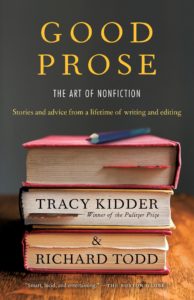 From now through August, Swenson Book Development LLC offers a special package for editorial feedback on the first ten pages of your manuscript.
From now through August, Swenson Book Development LLC offers a special package for editorial feedback on the first ten pages of your manuscript.
I want to read what you’ve been writing.
One of the most frequent requests I get from writers is a simple answer to the general question: is this any good? In order to answer any questions about a manuscript, you need to read it. Writers can ask their friends, family, and fellow writers to read their work and gain valuable feedback from doing so. But I know why they ask me. I’m a professional.
Typically I do not offer such quick assessments as I spend considerable time screening clients who come largely by word-of-mouth referrals. Ten pages however, is a common request for writers seeking literary representation or applying for juried residencies, workshops, and fellowships. Because I believe these valuable opportunities are part of developing a writer’s career, I am willing to help new and emerging writers with editorial feedback on the first ten pages of their manuscript for a flat rate of $100 during August 2018.
Getting editorial feedback on ten pages can provide you with advice to apply to the remainder of your manuscript pages. Consider it a future cost-savings on editing. Self-editing is a skill that can be honed by working with an editor and learning to improve your own copy.
Many writers think an editor isn’t helpful until you have a full manuscript. This isn’t true except for saving money on proofreaders and line editors. It doesn’t make sense to pay to proofread until you have final galley proofs to read. Line editors can help with language mechanics and reading comprehension but the work is more micro than macro in editorial perspective. A developmental editor can help you develop your manuscript into a book, or a short story or magazine article. Working with a developmental editor can help you shape your work and help you find appropriate publication venues.
 Richard Todd is a developmental editor who has worked with Tracy Kidder on multiple bestselling narrative nonfiction books. Best known for the story of Doctor Paul Farmer in Mountains Beyond Mountains, Tracy Kidder co-authored a book with Richard Todd on their collaborative process. Good Prose: The Art of Nonfiction is their conversation about finding the heart of a story, solving creative problems, narrative structure, and how to avoid playing loose with the facts.
Richard Todd is a developmental editor who has worked with Tracy Kidder on multiple bestselling narrative nonfiction books. Best known for the story of Doctor Paul Farmer in Mountains Beyond Mountains, Tracy Kidder co-authored a book with Richard Todd on their collaborative process. Good Prose: The Art of Nonfiction is their conversation about finding the heart of a story, solving creative problems, narrative structure, and how to avoid playing loose with the facts.
For fiction writers, developmental editors are sometimes called story editors or story doctors. In the movies, they are story editors and often co-executive producers. Continuity issues, character development, scene setting, plot, and other literary concerns can best be addressed early in the construction of a storyline. Most of the issues developmental editors work on with nonfiction writers are derived from the literary traditions of fiction. Developmental editing is about the story and how to help you best tell it.
What is a developmental edit? A substantive, structural, and comprehensive assessment of the document, the concepts, intended use by an audience, content, organization, and style. You will not get a simple yes or no answer to the question of whether it is any good. You will get professional advice on how to take your writing to the next level in preparing for publication.
 This past winter I worked with Amy Pershing and Chevese Turner as they co-authored a new book, Binge Eating Disorder: The Journey to Recovery and Beyond (Routledge, August 26, 2018). Both are incredibly busy professionals and involved family members active in their communities who collaborated on their manuscript and I helped coordinate and facilitate the production of a polished document on deadline. I am so proud of them for the incredible contribution this book makes to busting wide open the stereotypes and myths surrounding eating disorders and offers new hope for healing. Binge Eating Disorder has been recognized in the Diagnostic and Statistical Manual of Mental Disorders by the APA and this is the first book written on the subject. It addresses those suffering from binge eating disorder in a sympathetic manner since both authors are in long term recovery, and it is a new roadmap for other clinicians and advocates working with individuals and their families on a path to healing. The book comes out later this month and it has been a pleasure and privilege to be their developmental editor on this project.
This past winter I worked with Amy Pershing and Chevese Turner as they co-authored a new book, Binge Eating Disorder: The Journey to Recovery and Beyond (Routledge, August 26, 2018). Both are incredibly busy professionals and involved family members active in their communities who collaborated on their manuscript and I helped coordinate and facilitate the production of a polished document on deadline. I am so proud of them for the incredible contribution this book makes to busting wide open the stereotypes and myths surrounding eating disorders and offers new hope for healing. Binge Eating Disorder has been recognized in the Diagnostic and Statistical Manual of Mental Disorders by the APA and this is the first book written on the subject. It addresses those suffering from binge eating disorder in a sympathetic manner since both authors are in long term recovery, and it is a new roadmap for other clinicians and advocates working with individuals and their families on a path to healing. The book comes out later this month and it has been a pleasure and privilege to be their developmental editor on this project.
Book your August reservation for me to review your first ten pages HERE. And talk to me about contracts for a writing coach as your developmental editor. I’ll be taking on a few new client projects this fall. And so will Jenna Goodman for fiction, including children’s and YA.
What are you writing? I want to read it this August.

Shared and tweeted. With the highest recommendations.